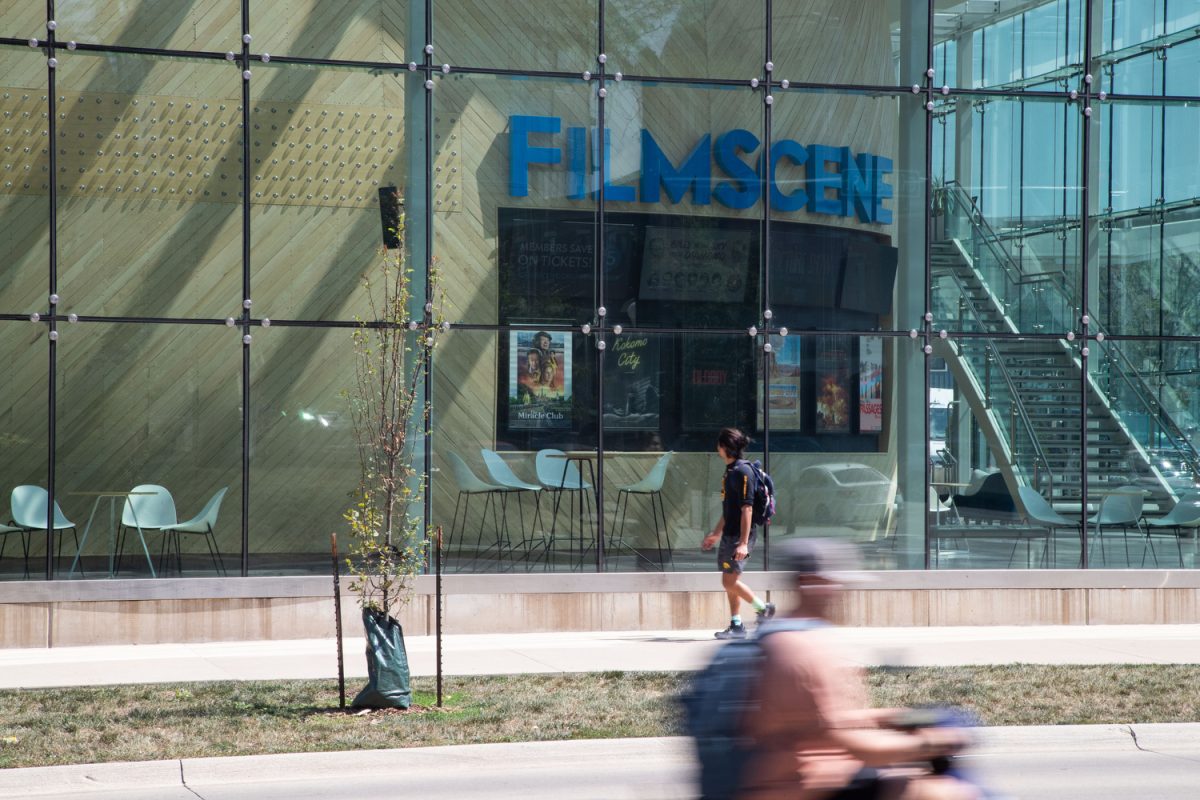As part of its “Reel Representation” series, FilmScene is showing “Scrapper” through Oct. 5, a new British film directed by Charlotte Regan.
FilmScene introduced its Women’s March initiative in 2018, which later blossomed into what is known today as “Reel Representation.” Jane Keranen, the programming assistant at FilmScene, said the program is aimed at screening films made by female and nonbinary filmmakers.
“We have a number of committees set out to ensure that we are always prioritizing underrepresented voices in filmmaking,” Keranen said. “It ensures that we are consistently telling these stories and presenting these stories on our screens.”
In 2022, 85.4 percent of top films — not counting streaming-only movies — were directed by men. The number has stayed between 80 and 90 percent since 2011.
“It’s essential that we acknowledge that filmmaking as an art form is not dominated by any one gender,” Keranen said. “It’s important for our community to recognize that these stories are so diverse and compelling.”
“Barbie,” directed by Greta Gerwig, was featured in “Reel Representation” this summer. Other recent and upcoming highlights include “Bottoms,” directed by Emma Seligman, “Eve’s Bayou,” directed by Kasi Lemmons, and “Yentl,” directed by Barbra Streisand.
RELATED: A March made for women filmmakers
While the focus of “Reel Representation” is to highlight female and nonbinary filmmakers, the series also screens work from other underrepresented filmmakers.
“We have an African diaspora committee and an African diaspora alkaloid series where we showcase Black Filmmakers,” Keranen said. “We also have a pride committee and a pride series where we showcase queer filmmakers and queer cinema.”
Charlotte Regan’s new release, “Scrapper,” follows the dysfunctional family life of a young girl named Georgie, played by Lola Campbell. Encompassing themes of grief, hope, and love, and offering audiences an emotional depiction of hardship, the film incorporates diverse casting and portrays realistic situations, creating an accurate portrayal of the world.
“It’s a very realistic depiction of what it’s like to have a dysfunctional family,” said UI student Alex Swanson, who attended a screening on Sept. 29. “It has a lot of well-thought-out subtext as well as being very good at showing and not telling.”
While “Scrapper” may not be raking in the same profits as “Barbie,” its purpose at FilmScene remains the same: to highlight the work of underrepresented artists.
“We need to be celebrating the stories and the voices that emerge from communities that are underrepresented in cinema,” Keranen said. “Demonstrating that these filmmakers can’t be pigeonholed into any kind of corner is essential.”



